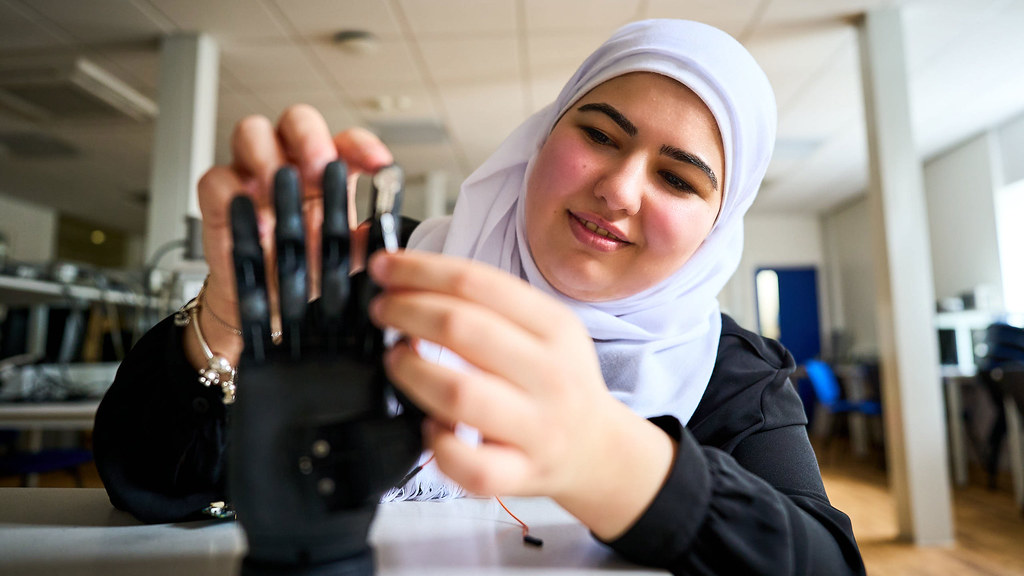Originally from Abu Dhabi, Leen came to Bath to study her undergraduate degree in Integrated Mechanical and Electrical Engineering and is now pursuing a PhD. She's researching how to create a greater sense of embodiment in prosthetic arms and hands for better control. Leen hopes her work with sensory feedback systems will help reduce the high abandonment rate of upper-limb prosthesis and make life easier for the millions of people worldwide living with upper limb difference.
Developing non-invasive sensory feedback
From additively manufactured carbon fibre to artificial intelligence, the last 50 years have seen huge advancements in the prosthetics industry. Even with this fast evolving technology, there is still an incredibly high rate of people not using their prostheses. This can lead to what is known as 'overuse syndrome', when someone relies too much on their intact limb, causing wear and tear on that side of their body.
Through her user research, Leen believes there is often a disconnect between expectation and the reality of being fitted with a prosthetic arm. Prosthetic limbs can still be heavy, uncomfortable and difficult to control for their users. They can also come with a hefty price tag.
'User research and identifying user needs has been central to my PhD. A major issue with those wearing prostheses is that they receive no sensory feedback. For example, how can you pick up a coffee cup if you can't feel how tightly to grip it? I'm hoping to develop a non-invasive sensory feedback system that will enable amputees to literally "feel again". This should help to reduce prosthetic limb abandonment.'
Much previous research has focused on creating a sensation by stimulating nerves using invasive methods such as implanting electrodes in the arm to send signals. This requires surgery, which carries with it a risk of infection. For those too far away or unable to afford healthcare, this simply isn't an option. Instead, Leen is examining placing electrodes around the arm and using signals to target specific nerves.
'I aim to create a simple, cheap and non-invasive system that a user could fit themselves. I'd like my research to be available to as many people as possible, so even those in the remotest parts of the world can access technology to help them live easier and healthier lives.'
